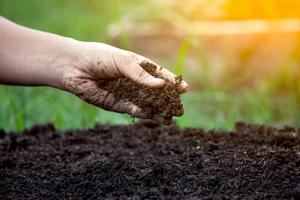Introduction
Cloning is a popular method of cannabis cultivation. As the name suggests, cloning involves taking cuttings from a mature cannabis plant and rooting them to create a genetically identical copy. The resulting clones are often prized by growers for their consistency and predictability. However, there is some debate over whether cloning affects the potency of the resulting plants. In this article, we’ll explore the question of whether cloning pot plants hurts potency.
The Science of Cannabis Cloning
To understand the potential impact of cloning on potency, it’s important to first understand the science behind the process. When cannabis plants are cloned, cuttings are taken from the vegetative stage of growth, typically from a mother plant that has demonstrated desirable characteristics. These cuttings are then rooted in soil, water, or a hydroponic system, and grown into mature plants that are genetically identical to the mother plant. Because they are genetically identical, clones are often referred to as “the same plant in a different pot.”
Understanding Potency
When we talk about potency in the context of cannabis, we’re typically referring to the concentration of THC and other cannabinoids in the plant. THC is the psychoactive compound in cannabis that produces the “high” typically associated with marijuana use. While THC concentration is an important factor in determining potency, it’s not the only factor. Other factors, such as the terpene profile, can also influence the overall effect of a particular strain.
Does Cloning Affect Potency?
Now to the question at hand: does cloning affect the potency of cannabis plants? There is no definitive answer to this question, as the impact of cloning can vary widely depending on a variety of factors. However, there is some evidence to suggest that cloning can have a negative impact on potency.
One reason for this is that clones are typically taken from plants that are already well into their vegetative stage. As a result, the clones may have a reduced capacity for producing THC and other cannabinoids. Additionally, because clones are genetically identical to their mother plant, they may be more susceptible to genetic drift over time. This can lead to reduced potency and predictability over multiple generations of cloning.
Maximizing Potency in Cloned Plants
Despite the potential risks associated with cloning, many growers continue to use this method because of its benefits in terms of consistency and predictability. If you’re interested in cloning cannabis plants, there are several steps you can take to help maximize potency in your clones.
First, it’s important to select a mother plant that is robust and healthy, with a high concentration of THC and other desirable compounds. You should also take care to use clean growing equipment and avoid introducing pathogens or pests that could compromise the potency of your clones.
Additionally, some growers recommend taking cuttings from plants in the early stages of their vegetative growth, rather than waiting until they are well-established. This can help ensure that your clones have the capacity to produce high levels of THC and other cannabinoids.
Conclusion
The question of whether cloning pot plants hurts potency is a complex one, with no easy answers. While there is evidence to suggest that cloning can have a negative impact on potency, there are steps you can take to maximize the potential of your cloned plants. Whether you choose to clone or grow from seed, the key to growing high-quality cannabis is careful attention to detail and a commitment to ongoing experimentation and improvement.

 how many times do yo...
how many times do yo... how many planted tre...
how many planted tre... how many pine trees ...
how many pine trees ... how many pecan trees...
how many pecan trees... how many plants comp...
how many plants comp... how many plants can ...
how many plants can ... how many plants and ...
how many plants and ... how many pepper plan...
how many pepper plan...
































